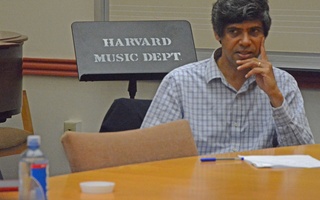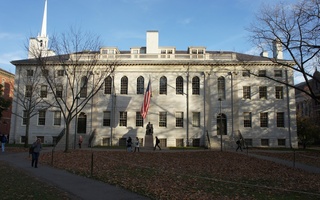A proposed dual degree program between the Music Department and the Berklee College of Music has some faculty members facing the music about the hidden costs associated with niche academic opportunities.
The proposal mirrors a partnership already in place between Harvard and the New England Conservatory.
Over the course of five years, students currently enrolled in the Harvard-NEC program receive a Bachelor of Arts from the College and a Master of Music from the conservatory. The Harvard-Berklee program similarly would allow students to receive a dual degree in fields including music technology, digital production, global music, and jazz performance, according to Music professor Ingrid Monson.
“We think it’s a terrific option for students to have,” Monson said. “It adds a new range in possibilities for our students to take advantage of.”
The Harvard-Berklee program would cost each student $8,000 per year, the same cost of the current Harvard-NEC program after which it is modeled, according to Music Department Chair Carol J. Oja.
The Harvard-Berklee program’s global jazz track, however, would be fully funded, whether the enrolled student is at Harvard or another school, Oja added.
Although the Faculty Council passed the proposal at a meeting last month, several council members disagreed with the vote, citing the program’s student-musician costs that financial aid would not cover.
Psychology professor Jason P. Mitchell, a member of the Faculty Council—which is the highest elected body in the Faculty of Arts and Sciences—voted against the program and also voiced his concerns at a general FAS meeting earlier this month.
The partnership would preclude underprivileged students from participating, an outcome not in line with Harvard’s mission of opening doors for students regardless of their socioeconomic backgrounds, Mitchell said.
“It seems to us as though it’s walking back from that commitment to now create new programs that will effectively be only open to students with the financial means to pay for them,” he said.
But Monson said other FAS programs, including summer school and study abroad opportunities, require students to pay supplementary fees that financial aid does not cover.
“The thing is, programs like this—where there are hidden costs—are not unusual at Harvard,” she said. “To tie the creation of the program to this University-wide issue, which really is not under discretion of the Music Department, is not fair,” she added.
Oja said costs associated with students’ courses of study are not new to music programs and also have not prevented a wide variety of students from participating.
“Students, unfortunately, are in a position to pay for a lot of extras, especially music students,” Oja said. “Music students, if they’re going to study with a teacher at Harvard... if they’re going to study privately, they pay for those lessons privately.”
To address the question of student costs, faculty members at Harvard and Berklee are already discussing additional fundraising opportunities for the proposed program.
Monson said professors from the Music Department and from Berklee may make presentations to people who might be interested in supporting the program financially.
“It’s very likely there will be fundraising through Berklee to help out with paying for this,” Oja said.
Regardless of these efforts, however, Oja said that her colleagues should evaluate the approval of the program independently of its costs, especially since it allows undergraduates ultimately to obtain a Master’s degree.
“This is a Master’s degree, so it’s sort of separate in many ways in thinking about the costs of an undergraduate education, because these are all costs that are ultimately targeted to a graduate degree, which is not what Harvard College does,” Oja said.
—Staff writer Melissa C. Rodman can be reached at melissa.rodman@thecrimson.com. Follow her on Twitter @melissa_rodmanRead more in Faculty News
GSAS Doubles Stipend and Time Off for New ParentsRecommended Articles
-
School of Public Health Will Launch Blended Master’s DegreeThe Harvard School of Public Health will launch a new master’s degree program that will be offered largely online, with a small residential component.
-
 Music Department Embarks on Concentration Redesign
Music Department Embarks on Concentration Redesign -
 Faculty Unanimously Endorse Student Diversity
Faculty Unanimously Endorse Student Diversity -
Faculty to Vote on Music, Gen Ed ProgramsMembers of the Faculty of Arts and Sciences will vote on a dual degree music program and on new legislation for the College’s program in General Education at Tuesday’s Faculty meeting.
-
 From Outside Lands 2018: Fresh Out of Berklee College, Boston Band Ajna Performs on the Main Stage
From Outside Lands 2018: Fresh Out of Berklee College, Boston Band Ajna Performs on the Main Stage













